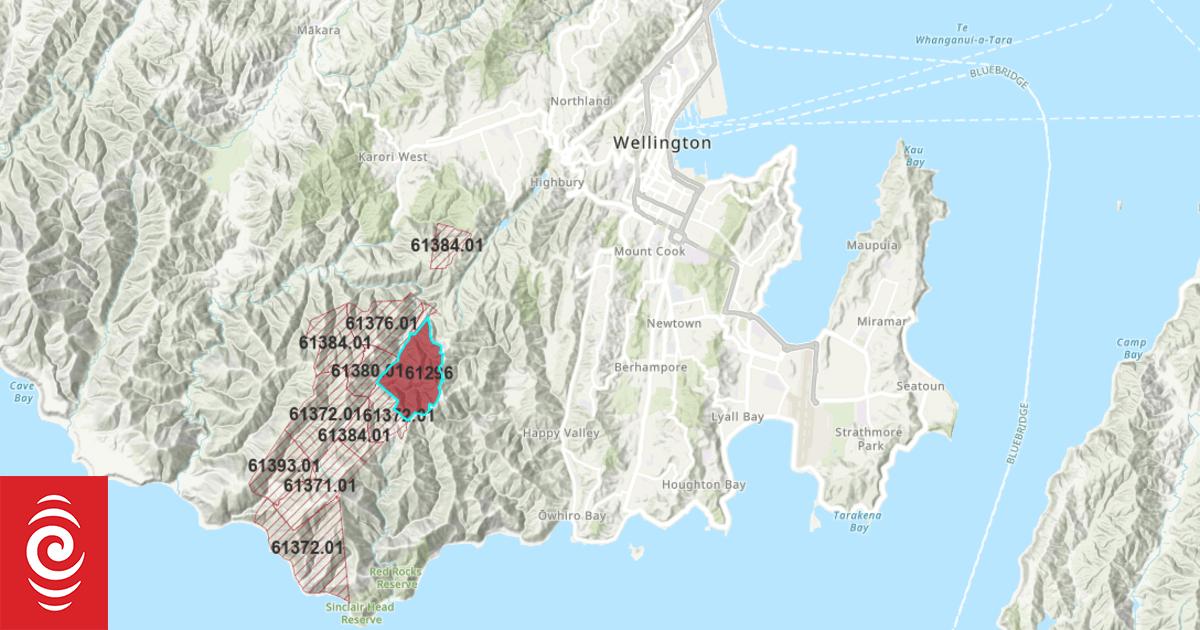A two-year permit to prospect for gold in the hills behind Wellington was granted last month.
Photo: NZ Petroleum & Minerals
An application has been granted to prospect for gold in the hills behind Wellington.
MBIE granted the two year permit last month which covers about a one-square kilometre section of land south west of nature reserve Zealandia and the wind turbine in Brooklyn.
A number of other applications from different operators have also been lodged in the area.
MBIE spokesperson John Buick-Constable said prospecting was the very first step in exploring for mineral deposits and typically involved activities of minimal impact.
“These can include literature searches, geological mapping, hand sampling and/or aerial surveys,” he said.
Permit holder Travis Mackay said essentially all he was allowed to do was use a shovel and pan to look for gold on his land.
He said he and his teenage son wanted an activity to do together, and were keen on panning, so he applied for the permit to “muck around in the creeks”.
“I just want to hang out with my son, it’s something cool for us to do.
“It’s literally just my son and I with a couple of pans down at the creek.”
He said panning without a permit could attract fines and he did not want that to happen.
Mackay said so far he had found only about four little flakes of gold, and that more gold could be gathered from recycled computer equipment than could be found in those hills.
He said the area was also too steep for a viable commercial operation.
Mackay said he was planning to upgrade to a hobby mining permit.
That allows for the use of sluice box, small motorised pumps, and suction dredges with an engine rating of no more than 10 horsepower.
Mackay said he does run a company which makes mining equipment but that is completely separate from the prospecting.
There is a history of gold works in the general area in the mid to late 1880s, although it did not generate large quantities.
Mackay said shortly after the permit was approved a neighbour had called authorities complaining he was running a mining operation.
“I was just literally clearing out some roads with my digger.”
He said MBIE staff visited the site.
RNZ has approached MBIE for comment.
Meanwhile, Wellington City Council said in a statement it was “very concerned” after being made aware of the mining allegations.
“We are investigating the matter and the enforcement options available if needed.”
How MBIE decides to grant an application
MBIE spokesperson John Buick-Constable said a further eight applications from various applicants for gold prospecting permits have been received for neighbouring or nearby acreage.
He said he could not comment on applications under evaluation.
Buick-Constable said New Zealand Petroleum and Minerals, a division of MBIE, issues permits under the Crown Minerals Act 1991 (CMA), which governs the allocation of rights to prospect for, explore, and mine Crown-owned minerals in New Zealand.
He said that when assessing an application, it could only apply the statutory tests set out in the act.
There were no specific considerations under the CMA for neighbouring properties or environmental impact, he said.
“But should the proposed activities require resource consent, those things would likely be considered during that consenting process.”
He said a permit under the CMA granted the holder the exclusive right to prospect, explore or mine for specified minerals.
“It does not grant access to, or use of, land. If a permitted area overlaps with privately-owned land, the permit holder must obtain permission from the landowner to access and carry out any activities on that land.”
Before a permit can be granted, the Minister for Resources or the delegated decision-maker under the CMA must be satisfied that the applicant is highly likely to be able to meet the requirements for a permit.
This considers the applicant’s financial capability, technical capability, compliance record, and high-level capability to meet health and safety and environmental legislation.
Sign up for Ngā Pitopito Kōrero, a daily newsletter curated by our editors and delivered straight to your inbox every weekday.

